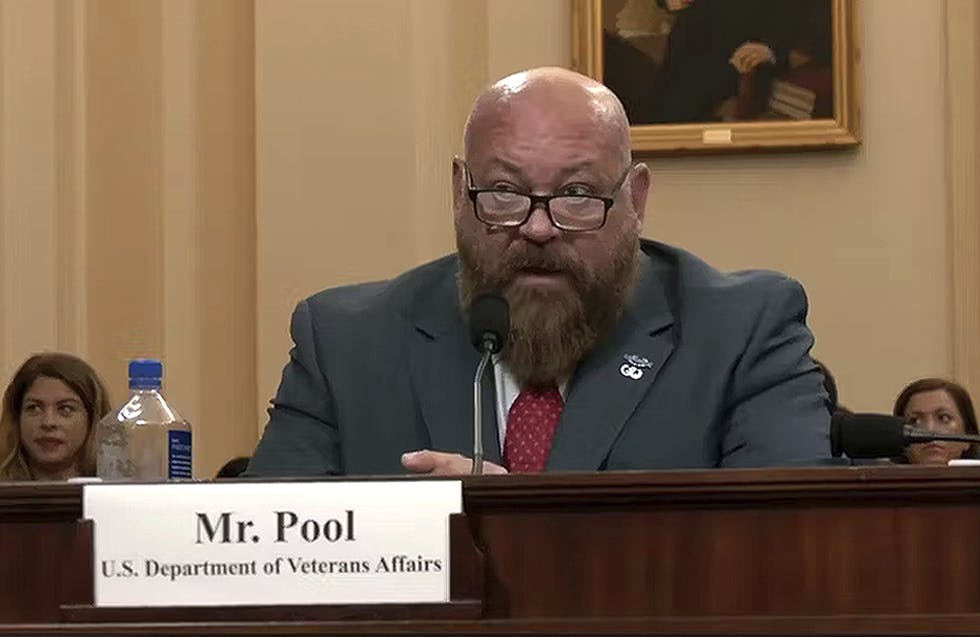NBIB Drastically Cuts Backlog Amid Merger with DOD
Emerging technologies and regional hubs are part of the solution to increase efficiencies in background investigations.

With approximately 450,000 background investigations in inventory and an executive order shifting its operations under the Defense Department, the National Background Investigations Bureau is optimistic about its future.
The agency this year has made significant progress in churning through its backlog, which reached 725,000 at its peak in April 2018, said NBIB Director and Acting Defense Counterintelligence and Security Agency Director Charles Phalen in a roundtable interview.
As Phalen assured progress would continue, he was quick to note that the agency operates in a steady state with thousands of cases in its working inventory. The backlog, in a sense, will never be eliminated.
“When you think about what our goal here is, it is never to get to zero because that just will never work out. Our working inventory that allows us to stay timely is roughly 200,000,” he said. “We’re halfway there, which I think is testimony to a lot of good work by the folks in this organization and others that have been helping us out on this.”
Phalen attributed much of NBIB’s recent productivity to the increase in its workforce capacity. Recognizing field work is the most time-consuming aspect of a case, NBIB has turned to regional hubs and technology for streamlining the work, in addition to new hires.
Regional hubs so far have already been successful in California, Colorado, Florida, Massachusetts and Washington, D.C., Phalen said.
They allow investigators to “spend far less time driving from point A to point B to point C,” he said. “Sitting in an office being able to have the necessary interviews with those subjects, any references that they’ve given us … that has been a tremendous time and cost saver.”
In terms of leveraging technology, NBIB is using video conferencing to securely issue resolutions on lower-level clearances. “That’s been a big help,” Phalen said.
Another technology on the horizon includes robotic process automation. “We’ve got some pilots running right now … to help collect information in a hurry,” Phalen said.
Nonetheless, information collection remains a challenge. The absence of a single repository for law enforcement records presents a large problem.
“There are lots of repositories, but they don’t all talk to each other,” Phalen said. “Many police agencies don’t share because they’re not big enough to have that kind of a repository, and it doesn’t get moved around.”
For others in the industry, the answer might lie in other technologies like artificial intelligence and machine learning.
Giant Oak, a company that creates analytical solutions from tech that stores and processes big data, uses its search technology known as GOST to harness these emerging technologies. Its system scours and continuously monitors a custom internet domain that prioritizes results according to a user’s needs.
By using artificial intelligence and machine learning, GOST has been able to identify individuals impersonating Department of State officials. It also scans profiles linked to threatening tweets, explained company founder and CEO Gary Shiffman.
The applications of this technology in background investigations are seemingly limitless, considering machine learning has the capability to operate in a mostly autonomous manner while it learns from data.
“We use machine learning to take advantage of the cases that you’ve worked in the past. So, in the security clearance or insider threat version of it, all of your past known cases of … security clearance violations or recommended denials and security clearances … we ‘machine learn’ off of those,” said Shiffman.
Whether its RPA, artificial intelligence or machine learning, however, both Shiffman and Phalen recognize that oversight of the technology should be maintained and final decision-making left to humans.
This is a carousel with manually rotating slides. Use Next and Previous buttons to navigate or jump to a slide with the slide dots
-

VA CIO Targets Modern IT and Smarter Workforce Alignment
Agency leaders told lawmakers they are focused on trimming legacy systems and restructuring its workforce to streamline operations.
3m read -

Pentagon's $200M AI Contracts Signal Broader Effort to Transform Talent
The Army is leveraging Silicon Valley, reservist programs and new hiring strategies to integrate critical digital skills in its ranks.
5m read -

AI Foundations Driving Government Efficiency
Federal agencies are modernizing systems, managing risk and building trust to scale responsible AI and drive government efficiency.
43m watch -

Inside DOD’s Push to Grow the Cyber Workforce Through Academia
Diba Hadi gives her first interview since becoming principal director of the DOD’s Cyber Academic Engagement Office.
15m listen -

Agencies Tackle Infrastructure Challenges to Drive AI Adoption
Federal agencies are rethinking data strategies and IT modernization to drive mission impact and operational efficiency as new presidential directives guide next steps.
5m read Partner Content -

Generative AI Demands Federal Workforce Readiness, Officials Say
NASA and DOI outline new generative AI use cases and stress that successful AI adoption depends on strong change management.
6m read -

The Next AI Wave Requires Stronger Cyber Defenses, Data Management
IT officials warn of new vulnerabilities posed by AI as agencies continue to leverage the tech to boost operational efficiency.
5m read -

Federal CIOs Push for ROI-Focused Modernization to Advance Mission Goals
CIOs focus on return on investment, data governance and application modernization to drive mission outcomes as agencies adopt new tech tools.
4m read -

Fed Efficiency Drive Includes Code-Sharing Law, Metahumans
By reusing existing code instead of rewriting it, agencies could dramatically cut costs under the soon-to-be-enacted SHARE IT Act.
5m read -

Agencies Push Data-Driven Acquisition Reforms to Boost Efficiency
New initiatives aim to increase visibility of agency spending, improve data quality and create avenues to deploy solutions across government.
5m read -

Data Transparency Essential to Government Reform, Rep. Sessions Says
Co-Chair of the Congressional DOGE Caucus Rep. Pete Sessions calls for data sharing and partnerships to reduce waste and improve efficiency.
5m read -

DOD Turns to Skills-Based Hiring to Build Next-Gen Cyber Workforce
Mark Gorak discusses DOD’s efforts to build a diverse cyber workforce, including skills-based hiring and partnerships with over 480 schools.
20m listen
















